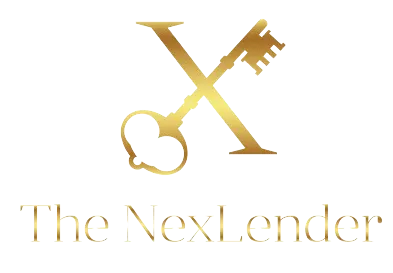FAQs
Your Mortgage Questions, Answered!
Frequently Asked Questions
welcome to the hall of answers!
At The NexLender, we understand that the mortgage process can seem like a complex maze—no need to worry, though! We’ve assembled a collection of the most frequently asked questions, designed to be your guide through every twist and turn of your homeownership adventure.
Whether you're figuring out your origin story with loan options, gearing up for the application showdown, or preparing for the final closing chapter, we’ve got the answers you need to become the hero of your own home-buying saga.
Dive into the topics below, and if you don’t spot your question, don’t hesitate to summon our team of mortgage experts. We’re here to ensure your journey is nothing short of legendary!
What is the difference between a fixed-rate and an adjustable-rate mortgage?
A fixed-rate mortgage has an interest rate that remains the same for the entire term of the loan, ensuring consistent monthly payments. An adjustable-rate mortgage (ARM), on the other hand, has an interest rate that can change periodically based on market conditions, which means your monthly payments can increase or decrease over time.
Fixed-rate mortgages are ideal for those who plan to stay in their home long-term, while ARMs can be beneficial for those who expect to move or refinance before the initial fixed period ends.
How much do I need for a down payment?
The down payment amount can vary depending on the type of mortgage, the type of property, and how you will occupy it. Typically, conventional loans for an investment property require a down payment of 20% of the home's purchase price, but some loan programs, like FHA loans, allow for down payments as low as 3.5% if it will be your primary home.
VA and USDA loans may offer no-down-payment options for eligible borrowers. It's important to discuss your options with your loan officer to determine what works best for your financial situation.
What credit score do I need to qualify for a mortgage?
While the required credit score can vary by lender and loan type, most conventional loans require a minimum credit score of around 620. FHA loans may allow scores as low as 580, while VA and USDA loans might also have more lenient credit requirements. A higher credit score generally means better interest rates and terms, so it's beneficial to check your credit report and work on improving your score before applying.
What is a mortgage pre-approval, and why is it important?
Mortgage pre-approval is a process where an underwriter reviews your financial information—such as income, assets, and credit score—and provides a written estimate of the loan amount you qualify for. Getting pre-approved is important because it shows sellers you are a serious buyer with financing already lined up, which can give you an advantage in competitive markets. It also helps you set a realistic budget for your home search.
How do I choose the right mortgage lender?
Choosing the right mortgage lender involves comparing interest rates, loan terms, fees, and customer service. It's important to get quotes from multiple lenders and consider the overall cost of the loan, not just the interest rate. Additionally, working with a lender who communicates clearly and is responsive to your needs can make the mortgage process smoother and less stressful.
What are closing costs, and how much should I expect to pay?
Closing costs are fees associated with finalizing your mortgage and can include (but not limited to) things like loan origination fees, appraisal fees, title insurance, and attorney fees. Typically, closing costs range from 2% to 5% of the home's purchase price. It's important to ask your lender for a detailed breakdown of these costs early in the process so you can budget accordingly.
How long does it take to close on a mortgage?
The time it takes to close on a mortgage can vary, but it generally takes 30 to 45 days from the time your offer is accepted to the closing date. This timeline can be affected by factors such as the type of loan, the complexity of your financial situation, and how quickly you provide the necessary documentation. Staying in close contact with your lender and promptly responding to requests can help ensure a smooth and timely closing process.
Can I pay off my mortgage early, and are there penalties for doing so?
Many mortgages allow for early repayment without penalties, which can save you money on interest over the life of the loan. However, some loans may have prepayment penalties, especially in the early years of the mortgage. It's important to check your loan agreement or discuss this with your lender to understand the terms related to early repayment and any potential fees.
Contact Info
Contact Info


"The NexLender" is a brand working with the authority of Eclipse Funding LLC and its subsidiaries.
© Copyright 2022. The NexLender All rights reserved.